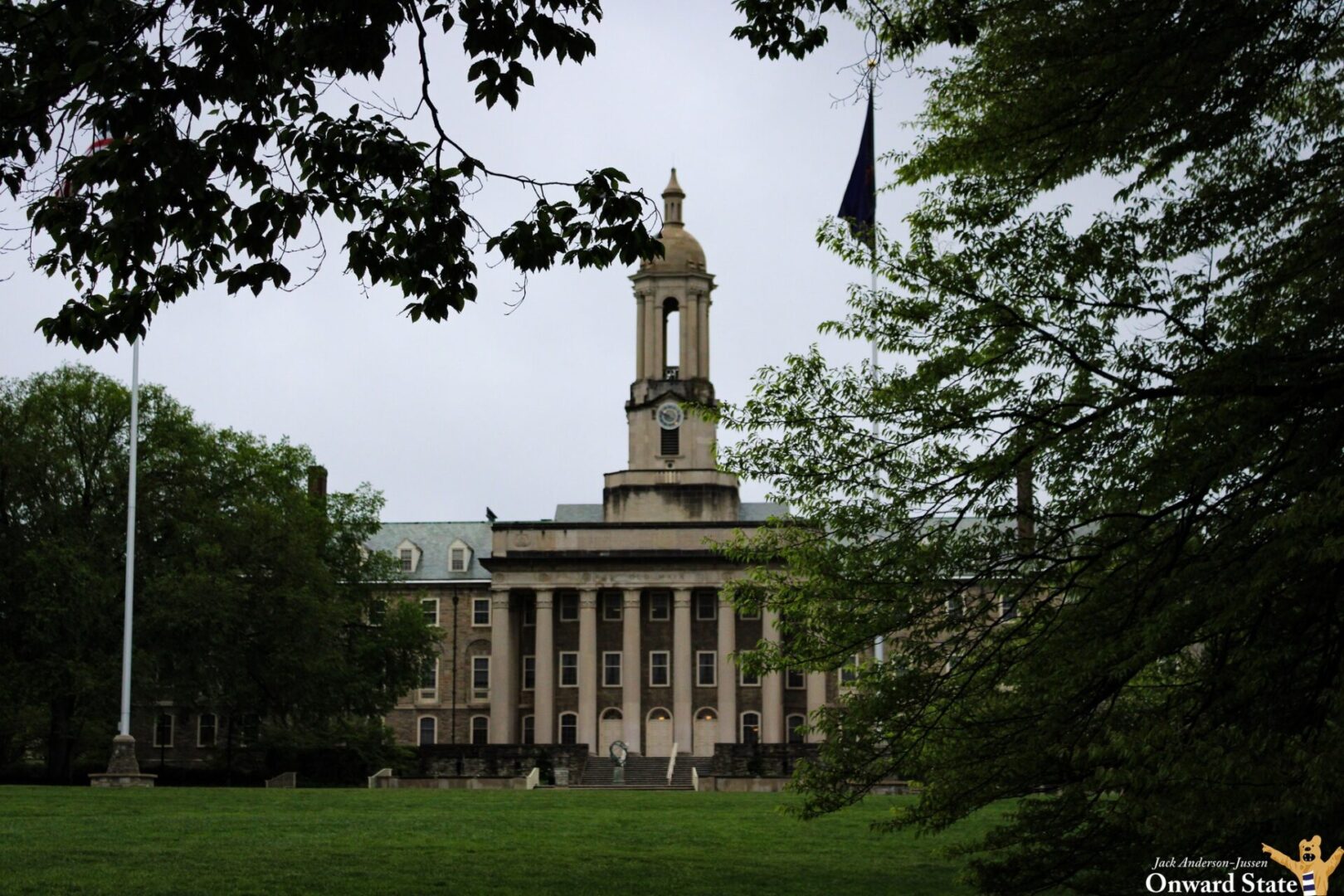Members of the Penn State Faculty Alliance delivered a petition to university President Neeli Bendapudi on Wednesday protesting the proposed closure of seven Commonwealth Campuses.
The petition, which garnered more than 500 signatures, says the university administration has “fast-tracked” the plan and made decisions in private at “a reckless pace,” while failing to fully analyze the impact on students, faculty, staff and the campus communities.
It was delivered to Bendapudi’s Old Main office a day before the Board of Trustees is scheduled to vote on the proposal to shutter the DuBois, Fayette, Mont Alto, New Kensington, Shenango, Wilkes-Barre and York campuses following the 2026-27 academic year.
“This petition is necessary to have our collective voices heard by both the administration and the Board of Trustees because this administration has not meaningfully engaged Commonwealth Campus faculty in the decision to close campuses,” Rebecca Sarver, an assistant teaching professor of criminal justice at Penn Sate Wilkes-Barre and alliance organizer, said in a statement. “Every day, we connect with the people this institution is designed to serve, the students. Collectively, we have knowledge and experience that this administration should have consulted in this process to produce the best options for the students, communities, faculty, staff and Penn State.”
The alliance, which is in the process of organizing a faculty union with SEIU Local 668, called the proposed closure “Penn State’s most significant employment crisis,” leaving hundreds of faculty staff in a state of uncertainty. The petition also states that many students at the campuses come from lower-income backgrounds or are otherwise not easily able to transition to another campus further from home, and that they are already dealing with uncertainty and faculty and staff departures.
Penn State’s recommendation report says the university will honor faculty contracts, offer tenure-line faculty “need-driven reassignments to remaining campuses,” and give non-tenure line faculty and staff “priority hiring consideration” if they apply for open roles across the university. Students at the affected, the report says, “will have the opportunity to complete their degree at Penn State” and will “receive personalized guidance and advising” to ensure they understand their options.
The alliance’s petition argues there are many questions left unanswered.
“There has been no analysis of this plan’s financial, educational, or community impact, raising many questions about the legitimacy of the administration’s ‘data-driven’ decisions,” it states. “Furthermore, there is no transparent or reasonable plan for how impacted faculty, staff, and students will be treated, leaving a door open for further unethical decisions to be made reactively. Closures will impact hundreds of Penn State workers, including those at campuses that remain open—employees from other locations may be relocated in ways that displace those at ‘safe’ locations.”
Penn State’s rationale for closing campuses also came under criticism, with the alliance pointing to remarks by Bendapudi at a University Faculty Senate meeting suggesting the closures would not necessarily be about cost-savings.
According to the recommendation report, the campuses proposed for closure “face overlapping challenges, including enrollment and financial decline, low housing occupancy and significant maintenance backlog,” according to the report. While reasons varied by campus, some included shifting demographics in relatively crowded markets for institutions of higher education, narrow program offerings and prohibitive costs to deliver “services and experiences expected of a Penn State education.”
If the decision isn’t about cost-savings, the petition asks, “Why not invest in them and strengthen their essential role in fulfilling Penn State’s land grant mission?”
“These campuses are vital public institutions that provide access and opportunity for students of diverse backgrounds across the state,” it continues. “The dedicated employees who build supportive learning communities across our Commonwealth deserve dignity, transparency, and fair treatment in return for their labor, not abandonment.”
The petition called on the university to:
- Stop the campus closure process immediately;
- Conduct a full analysis and consultation to identify opportunities for investment in the campuses;
- Commit to transparency and involve employees and communities in meaningful decision-making;
- Treat all university employees with dignity and respect.
The faculty senate adopted a positional report in April calling for similar measures and is among various groups and individuals that have advocated for halting closure plans to consider alternatives and conduct an open process.
Several current and former trustees have penned op-eds published on StateCollege.com objecting to the closures, and the American Association of University Professors and its Penn State chapter urged the university to reconsider its plans. A faculty-authored open letter opposing the closures and criticizing the process that led to the proposal had more than 750 signatories.
The alliance’s petition says the process for determining campus closures since Bendapudi announced in February that 12 were under consideration has been marked by “poor upfront planning and a lack of consultation.”
“Even though I’m located at University Park, as a librarian, I get to work with people who are doing amazing things with Penn State students across the Commonwealth,” Ruth Tillman, an associate librarian at University Park and alliance faculty organizer, said in a statement. “I think it’s shameful that the administration proposes taking life-changing opportunities out of these communities and cutting loose anyone who can’t move.”
Penn State’s Board of Trustees is scheduled to meet at 5 p.m. on Thursday. A livestream link and the agenda are available at trustees.psu.edu/thursday-may-22-2025/.



